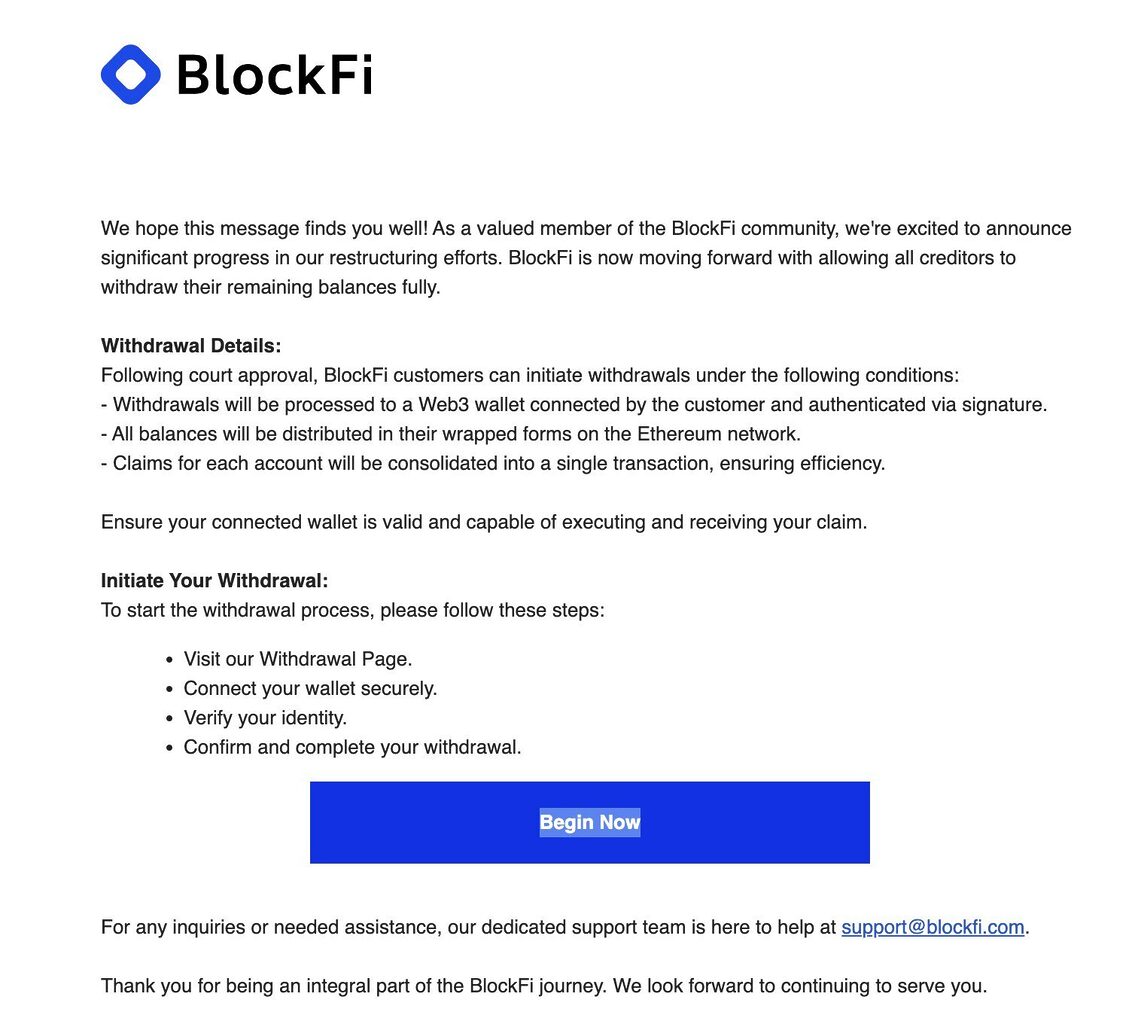
- Scammers are targetting FTX and BlockFi claimants with fraudulent emails.
- The emails appear very convincing.
- Scammers have managed to net millions in the past week.
FTX and BlockFi creditors are still left waiting for their reimbursement as we enter the second since their subsequent debacles. The sluggish and painstaking process appears to be testing their patience, creating an opening for scammers to prey on their frustrations.
Recently, fraudulent schemes posing as FTX and BlockFI have multiplied, luring unaware users with the promise of instant withdrawals and netting millions of dollars from unsuspecting users.
Scammers Lure FTX and BlockFi Users
Blockchain sleuth Plumferno raised the alarm on X regarding a sophisticated email phishing operation targeting victims of the defunct crypto firms FTX and BlockFi. According to Plumferno, scammers have siphoned off funds exceeding $7 million in just the past week.
Sponsored
Plumferno reported that hackers allegedly exploited the compromised email list from Mailer Lite’s data breach in January, setting the stage for this grand scheme. The blockchain investigator first noticed the scam following an influx of nearly $4.5 million in ether landing in the scammer’s wallet in the past week.
In addition to pilfering crypto, scammers also made off with blue-chip NFTs, including Mutant Apes, Otherdeed, and more. The bad actors particularly targeted dormant wallets belonging to FTX and BlockFi claimants.
Sponsored
User reports reveal that scammers sent them very convincing fake emails promising ‘significant progress in their restructuring efforts.’ According to a screenshot of the scam emails, claimants were instructed to process their wallets by connecting them and signing an authorization transaction.
How Should FTX and BlockFi Users Stay Safe?
Considering the sophistication of the scammer’s email, it’s evident malicious actors have refined their methods. While identifying scam emails involves looking for telltale signs like inconsistent grammar, requests for private keys, and prompts to click suspicious links, these emails lacked such issues, so FTX and BlockFi users must exercise extra caution.

It’s very important to perform your due diligence. Although some fraudulent emails could seem convincing, any updates regarding the defunct crypto firms can be easily verified through their official communication channels or reputable news sources.
Additionally, it’s important to note that FTX’s restructuring plan has yet to receive approval, with reimbursements likely to start by the end of Q2 2024. Interestingly, users will be paid in cash and not cryptocurrency based on November 2022 rates, per the latest court documents and details.
Besides that, here are a few tips to protect yourself:
- Double-check links, websites, and emails. Avoid clicking any link unless it’s from a verified source.
- Promptly report any suspicious activity to the appropriate authorities or departments.
- Seek assistance from official channels and prioritize your safety and security.
- Verify and scrutinize all addresses, including contracts, senders, and others, before taking any permanent actions.
On the Flipside
- In August, FTX had to shut down its Customer Claims portal after the platform’s bankruptcy claims agent, Kroll, had fallen victim to a security breach that exposed non-sensitive data.
- FTX has abandoned all plans of a possible revival of its exchange.
- Sam Bankman-Fried is looking at up to 50 years in prison for his role in the FTX collapse.
Why This Matters
FTX’s collapse indeed had a very lasting impact on the crypto landscape, and users patiently await receiving their funds; however, scams such as these serve as a stark reminder of the lengths scammers are willing to go to deceive unsuspecting individuals.
Memecoin bots raise gas prices:
Base Memecoin Bots Drive Gas Fees to Pre-Dencun Levels
Read why Ripple Devs are asking users to stop using XRPL’s new AMMs:
